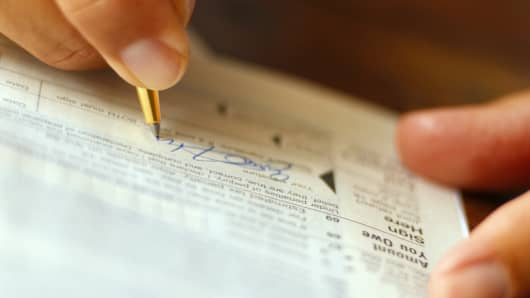Most Americans don't know much about President Donald Trump's new tax proposal but don't think it will be in their favor. That's the conclusion of polls run by CNBC since the GOP unveiled the framework for a tax reform bill in late September.
Responses to this week's CNBC All-America Economic Survey suggested that voters lean slightly toward the belief that their taxes will go up under the new plan. CNBC ran two additional surveys that confirmed that belief but found more details and nuance in Americans' understanding of taxes and the framework's effects.
Most people don't even know what they're paying in taxes in the first place. And if you ask them to guess their tax bracket, their answer doesn't match up with reality. Even more strange, our polls found that a lot of people say they haven't heard of the new tax plan or its details but assume it will hurt them anyway.
CNBC commissioned two different firms to run this analysis: Reconnect Research, which conducted a phone survey, and marketing company Fluent, which conducted an online poll. Each company asked slightly different questions, but the overall results matched up.




